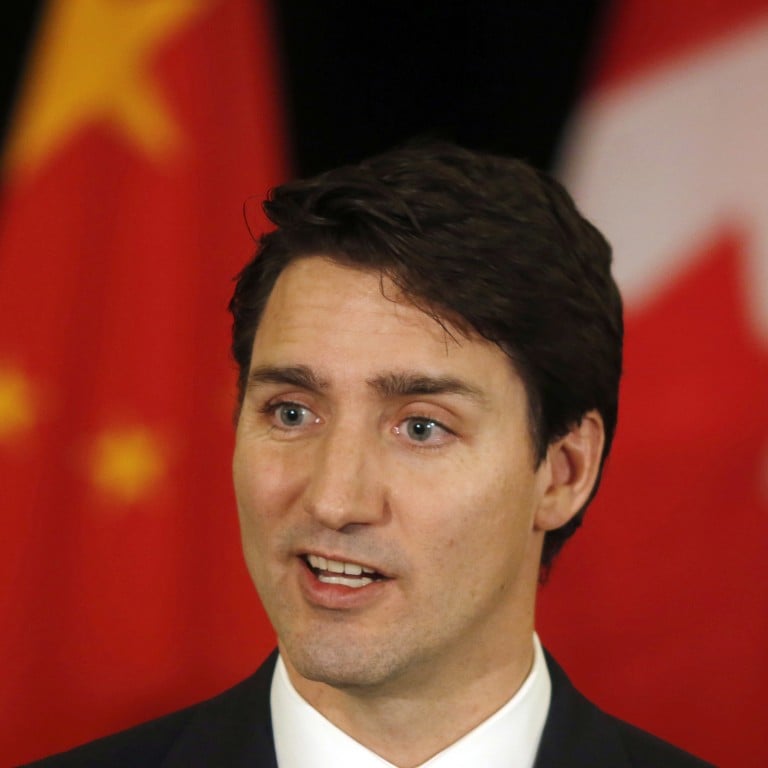
China-Canada ties to get frostier after call to leave AIIB, analysts say
- Prime Minister Justin Trudeau under pressure to scrap a planned US$189 million investment in Beijing-led bank as anti-China sentiment grows in Ottawa
- But leader is unlikely to bow to pressure from opposition party or Washington, observers say
“Ties are already freezing,” Liang Yunxiang, an international affairs expert at Peking University, said. “If Canada left the AIIB it would only make things worse.”

The group, which is set to meet for the first time on January 20, “will help shed light on Justin Trudeau’s failures to stand up for Canadian interests with respect to Beijing”, the party’s foreign affairs spokesman Erin O’Toole said in a statement.
The Conservatives have also called on Trudeau to scrap a planned C$250 million (US$189 million) investment in the AIIB, which Canada joined in March 2018 despite protestations from the United States, which expressed concerns about the bank’s perceived lack of transparency and claims it would be used by China to expand it geopolitical influence.
Canada’s opinion of China worsens as Huawei, detention rows drag into second year
David Mulroney, who served as Canada’s ambassador to China from 2009-12, echoed those calls, describing the AIIB as “deeply problematic for many reasons”, with “the most important being China’s steady assault on the free flow of information at home and abroad”.
He also accused Beijing of trying to use its “financial clout to advance its ideological agenda, and force debtor nations to comply”.

Liang is convinced the latest moves in Ottawa were influenced by Washington.
“The worsening relationship is clearly linked to the US. As Washington has adopted a more assertive stance towards Beijing, so the anti-China sentiment has increased in Ottawa,” he said.
Liu Weidong, a specialist in US affairs at the Chinese Academy of Social Sciences, said that despite suffering his first parliamentary defeat since re-election, it was unlikely Trudeau would give in to the calls for him to take a harder line on China.
“I don’t think Canada will leave the AIIB simply because of the pressure from the opposition party, although ties between the two countries have been chilly for about a year,” he said.
China, Canada no closer to resolving difficulties
Yves Tiberghien, a professor of political science at the University of British Columbia, said frictions between Canada’s opposition parties would hinder their efforts to push Trudeau to take a harder line on China.
“It is important to note that the three parties do not agree on the main issues [and] there is no obvious way for parliament to force the government’s hand on the AIIB, as foreign affairs are mostly a prerogative of the government,” he said.
“For the Conservatives, it is mostly a symbolic issue – a way to express anger at China’s actions and to fight back. The impact on the AIIB would be nil, although symbolically, China would take it as a swipe and may well react,” he said.
When asked to comment on the issue, the AIIB said in a statement that “as an apolitical institution, it would be inappropriate for us to comment or speculate on Canada’s domestic political deliberations”.
It did, however, say that Canada “is a full member of the AIIB and a strong contributor to the bank’s governance as a member of our board of directors”.

